
Pourquoi ai-je jamais été en Norvège, Je me demande comme je vois les images à couper le souffle de ce pays étonnant sur la recherche Google. Je Envoyer à un ami proche, Expert norvégien et talentueux architecte, Maddy Vigeland, and ask her to share with me a Norwegian view for my new education post.
“A few things come to mind,” Maddy emails back. “In addition to skiing, the fjords — miles and miles of dramatic landscape, salmon/lox, something called lutefisk. Puis, folk songs, the bravery of Leif Ericson, the adventures of Thor Heyerdahl and his Kon-Tiki, the sadness of Edvard Munch paintings, the bold and brutal sculptures of Gustav Vigeland, the outrageous integration of landscape with culture in Oslo’s new ballet and opera house by Snohetta architects. Aussi, Liv Ullman, Sonje Henie, and perhaps the most distinguishing characteristic of all — the general agreement by all Norwegians on the way to live — focused on the quality of life.”
Thank you Maddy Vigeland. I’m hooked, but before I will commit to admitting I’m booked, allow me to share an educational view of Norway from my newer Norwegian friend, Dr. Kirsten immersive,, professeur distingué à la faculté d'éducation de l'Université d'Oslo.
Quel type de système éducatif permettra à un pays d'avoir les compétences humaines nécessaires pour être compétitif à l'échelle mondiale?
The latest findings from large scale assessment and knowledge reviews support conclusions that comprehensive education is most successful. In comprehensive education, students acquire knowledge and experience within demographically diverse learning milieus and face a multitude of expectations that are both cultivating and qualifying. Schools where students are grouped according to their abilities and aptitudes, are not as effective.
Quel est votre point de vue des tests standardisés?
Standardized testing informs policy makers and practitioners about some of the outcomes of education. Cependant, these tests are limited in scope in measuring the quality of teaching and learning in schools. Some assessment systems, like PISA, measure competencies of large populations, entre 4,500 et 10,000 15-16 year old students in each country. These tests might stimulate debates on what is the intellectual capability of students around the globe, but are not so good at measuring the content and methods of teaching.
Si la généralisation est possible, what elements are missing from the current systems, such as critical thinking or other dimensions of human interest and intelligence?
The OECD studies concentrate on the human competencies that are needed in a learning society. This might lead to an orientation to productive learning and performance. Cependant, individual capacity as well as communication is also dependent on receptive skills, which develop through understanding, interpretation and reflection. These skills are not easily measured, but still are essential to become an educated citizen.
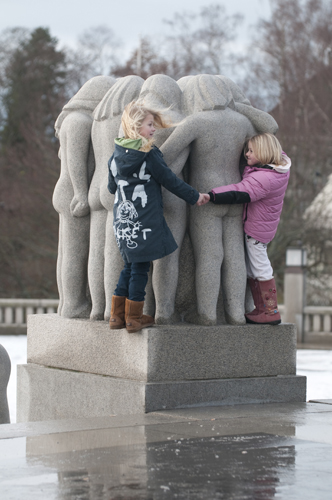
Que peut-on faire pour mieux assurer le bien-être émotionnel et le potentiel intellectuel de l'individu, qui semblent souffrir du système actuel?
The overall charge of school leaders is to promote school systems which are based on core values like human dignity and respect. This means to stress responsibility rather than accountability and form assessment systems according to overall aims of schooling. It is important that the school system stands on “two legs”: on a well designed curriculum and assessment for learning. For the moment, policy makers have been most concerned about one leg, to create expectations about performance through assessment and accountability systems. They forget that a well-working system depends on good structures, framed by systemic reform and the curriculum.
En Norvège, there is a tradition to formulate national curriculum guidelines which are broad based, yet provide a framework for what schooling is about. The guidelines are focused on central aims and subject matter which presuppose thoughtful teaching to be accomplished well. This approach is deliberative in character and guarantees that teaching manuals and prescriptions, whether they be scientific or political, are adjusted to deliberative practices in schools. Emphasis on deliberation will address both emotional well-being and the intellectual potential of the individual.
Du point de vue plus large, ne la définition de votre pays de l'excellence en éducation de prendre en compte la qualité de vie des individus et de la société, y compris ses réalisations artistiques et culturelles?
The most prominent example of this approach is the Finish educational system. En Finlande, a new national curriculum will be implemented in a few years, giving priority to aesthetic subjects. The curriculum is comprehensive, yet students in Finland perform very well in large scale assessment, such as PISA, so a comprehensive curriculum might stimulate good results/outcomes. Le programme général en Norvège décrit un programme complet ainsi et l'être humain intégré comme celui qui est à la fois cultivé et qualifié. Ici, la tradition est de garantir non seulement de bons résultats sur les tests nationaux, mais aussi un système scolaire où les élèves se amusent et l'expérience d'un bon environnement d'apprentissage. Je pense que la joie et le travail acharné doivent aller main dans la main.
Sagesse mondiale de la Norvège
Les tests standardisés ne mesurent pas la qualité de l'enseignement ou de la qualité de l'apprentissage dans les écoles. Il ya trop d'importance dans nos systèmes d'éducation sur l'évaluation et la reddition de comptes au lieu de sur le curriculum et la responsabilité. Donner aux enseignants plus de latitude pour adapter les directives aux besoins des élèves. La définition de l'excellence en éducation en Norvège: un programme complet, un peu comme en Finlande, où l'étudiant devient à la fois cultivée et qualifié. Joy et le travail acharné doivent aller main dans la main.
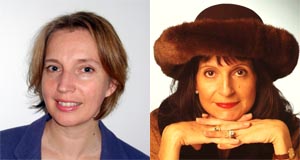
Photos courtesy of Norwegian Embassy.
Dans La recherche globale pour l'éducation, rejoindre C. M. Rubin et leaders d'opinion de renommée mondiale dont Sir Michael Barber (Royaume-Uni), Dr. Leon Botstein (États-Unis), Dr. Linda Darling-Hammond (États-Unis), Dr. Madhav Chavan (Inde), Le professeur Michael Fullan (Canada), Professeur Howard Gardner (États-Unis), Professeur Yvonne Hellman (Pays-Bas), Professeur Kristin Helstad (Norvège), Professeur Rose Hipkins (Nouvelle-Zélande), Professeur Cornelia Hoogland (Canada), Mme. Chantal Kaufmann (Belgique), Professor Dominique Lafontaine (Belgique), Professeur Hugh Lauder (Royaume-Uni), Professeur Ben Levin (Canada), Professeur Barry McGaw (Australie), Professeur R. Natarajan (Inde), Sridhar Rajagopalan (Inde), Sir Ken Robinson (Royaume-Uni), Professeur Pasi Sahlberg (Finlande), Andreas Schleicher (PISA, OCDE), Dr. David Shaffer (États-Unis), Dr. Kirsten immersive, (Norvège), Chancelier Stephen Spahn (États-Unis), Yves Thézé (Lycee Francais US), Professeur Charles Ungerleider (Canada), Professeur Tony Wagner (États-Unis), Professeur Dylan Wiliam (Royaume-Uni), Professeur Theo Wubbels (Pays-Bas), Professeur Michael Young (Royaume-Uni), et le professeur Zhang Minxuan (Chine) alors qu'ils explorent les grandes questions d'éducation de l'image que toutes les nations doivent faire face aujourd'hui. La recherche globale pour l'éducation communautaire page
C. M. Rubin est l'auteur de deux séries en ligne largement lecture pour lequel elle a reçu une 2011 Upton Sinclair prix, “La recherche globale pour l'éducation” et “Comment allons-nous savoir?” Elle est également l'auteur de trois livres à succès, Y compris The Real Alice au pays des merveilles.
Suivez C. M. Rubin sur Twitter: www.twitter.com/@cmrubinworld



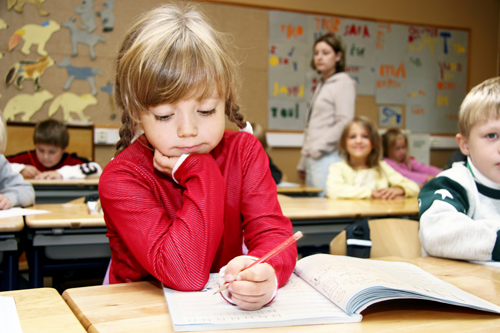
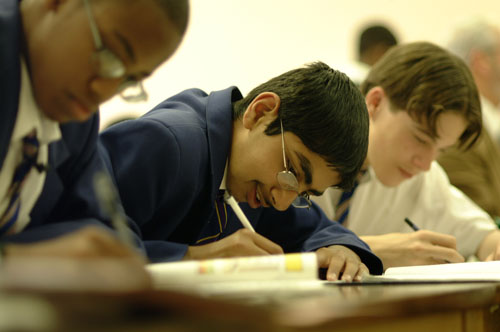
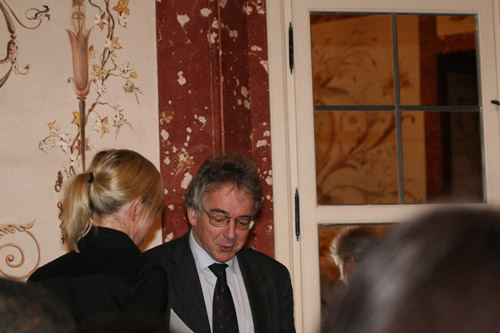
Commentaires récents